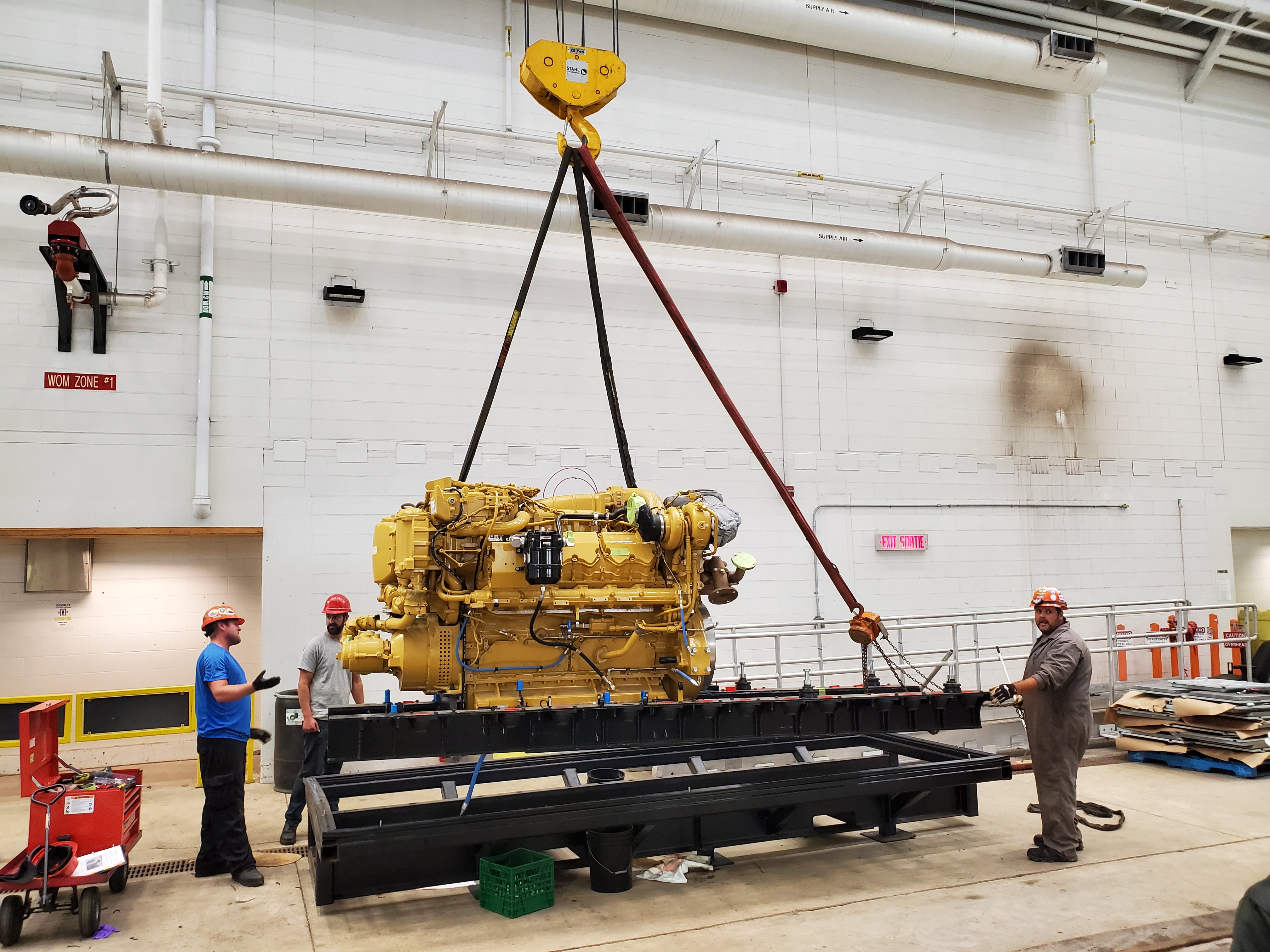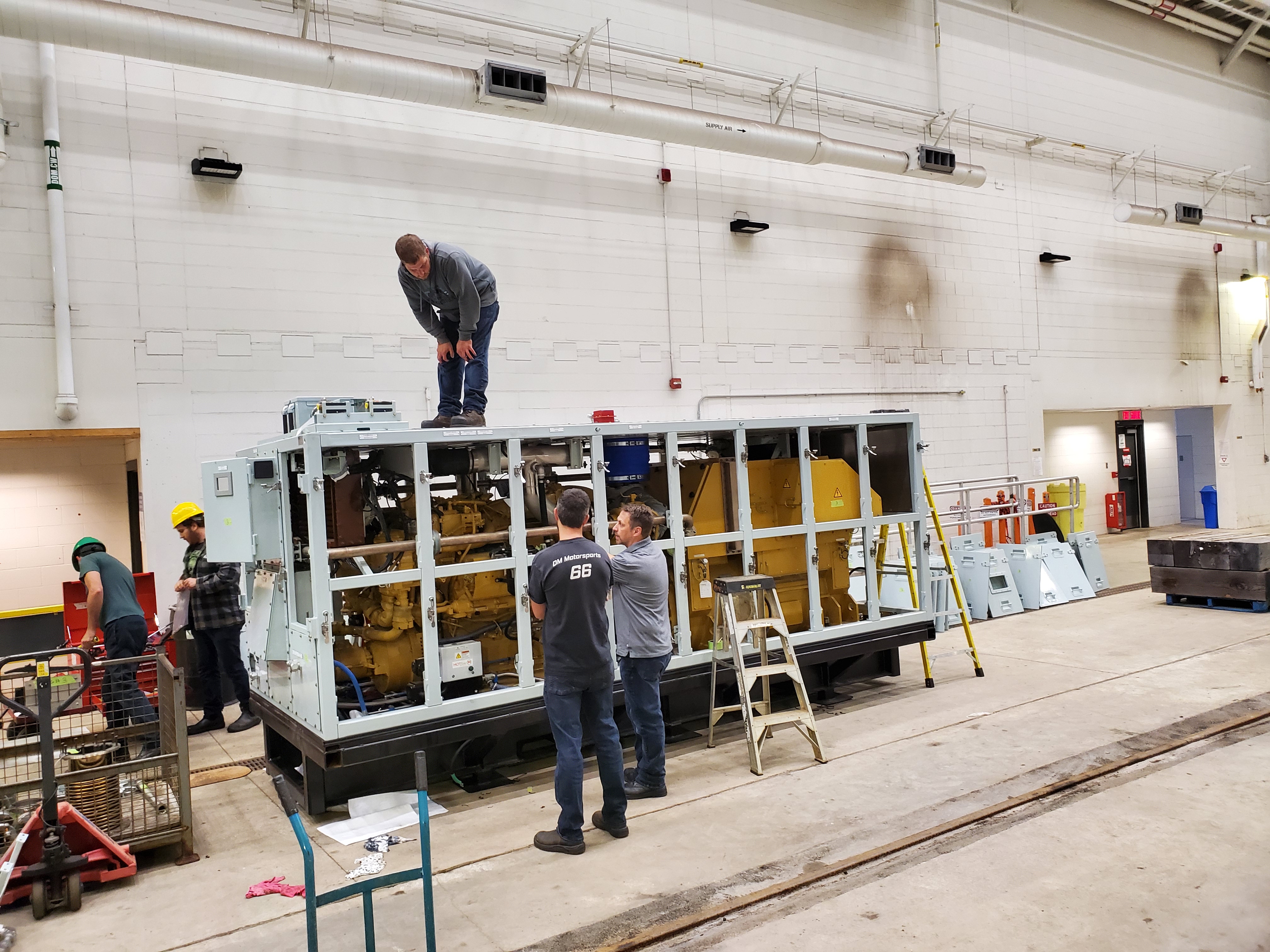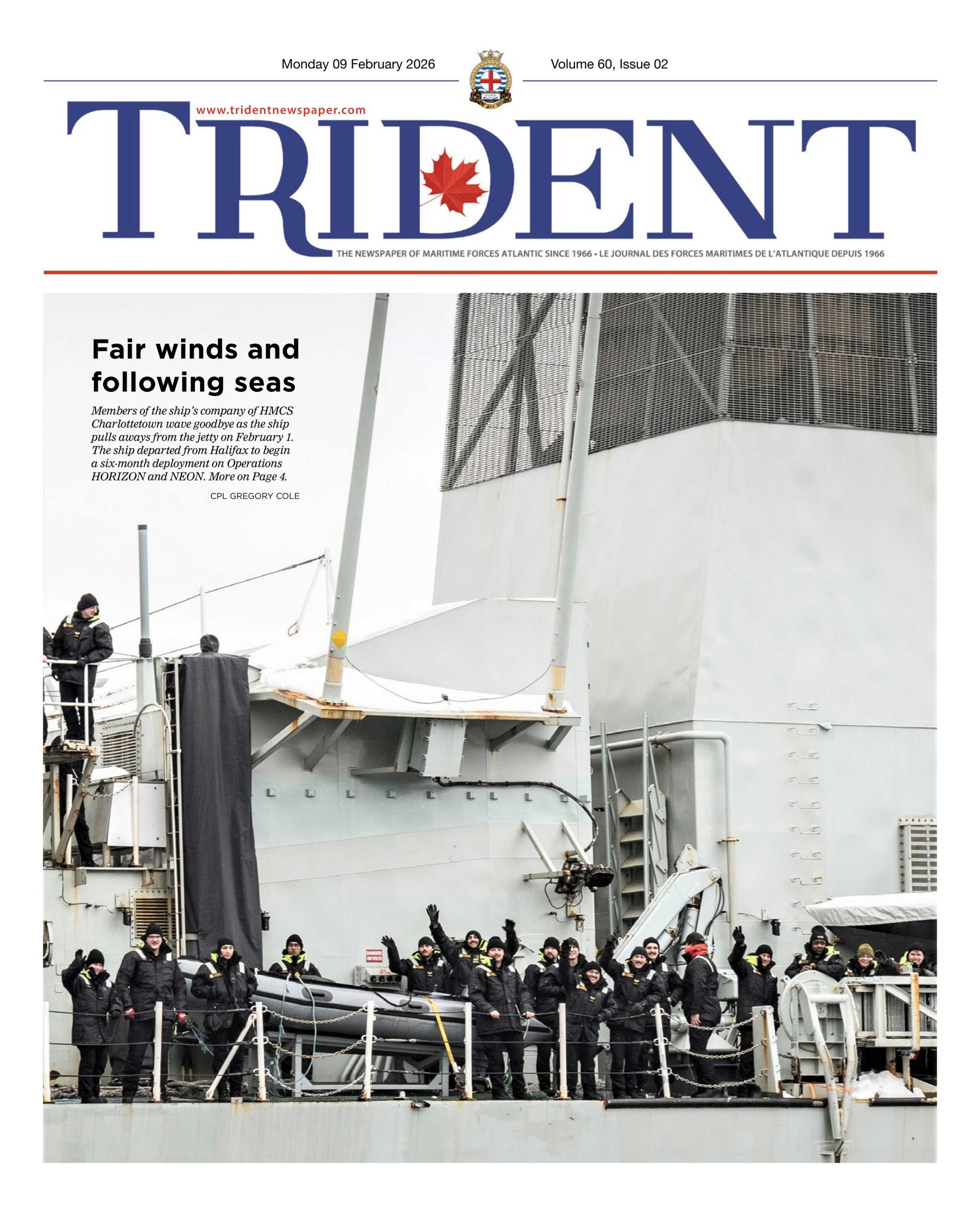
FMFCS replaces MWM engines with CAT diesel engines for first time in FMF history
By Ashley Evans,
Strategic Communications Officer, Strategy Department, Fleet Maintenance Facility Cape Breton
FMFCS has been busy preparing for the replacement of two Mortoren- Werke Mannheim (MWM) diesel generators with Caterpillar (CAT) diesels on HMCS Ville de Quebec, an Engineering Change (EC) that hasn’t yet been done by either FMF.

SUBMITTED
The MWM engines have become hard to support due to their age, parts were becoming more difficult to acquire and maintain, and they were proving to be unreliable. As they have reached the end of their lives and are becoming obsolete, a change had to be made in order to support the CPF engines. The new engines slated to be installed are better suited for their application.
This EC has been on-going for the past few years, but this is the first time one of the FMFs have had a part in doing an install of the new equipment. This evolution has normally been done solely by contractors, as was completed with three vessels before this one – HMC Ships Charlottetown, Montreal, and Fredericton, who already have CATs installed. This work has been completed with contractors in the past because the work corresponds with docking abilities; FWD engines must be changed while ships are out of the water, while AFT are easier to complete with the ships alongside.
FMFCS has had the knowledge and skill sets required to complete these replacements within our facility and have wanted to show our strategic capability. There are four engines on the Canadian Patrol Frigates; two FWD and two AFT. Oftentimes, members of the FMFCS workforce are required to travel overseas to conduct repairs on these vessels. It is integral that this capability be proven at FMFCS as experience with the process will allow workforce members to conduct any necessary repairs overseas when the time comes.
Twenty-four various trades have thus far been involved in the planning stages for this evolution, including pipe fitters, sheet metal, electrical, diesel, riggers, welding, shipwrights, mechanical fitters, control shop, schedulers, planning, various engineering departments, as well as many other supportive departments and shops within the unit.
There are projected to be teams of approximately 18 people who will do most of the work onboard. There are 8,700 planned man hours in total for this EC, with 245 already having been completed (including projections until the end of October). While shops and departments are well underway in their planning and have begun the preliminary work, this replacement has been planned to begin at the end of October and will run five or six months, ending in March.
The most challenging part of this evolution, explains Marine Systems Engineering Officer J.F. Beaulieu and Diesel Shop Work Centre Supervisor Mark Hunt, has been convincing decision makers that FMFCS has the knowledge and a requirement to demonstrate our strategic capability by completing this job. Hunt said that taking on the challenge and letting FMFCS show what they can do, and how the people here can really do something special when given the opportunity, has been the most rewarding part of this process thus far.
“It has been rewarding seeing the pride in the people turning the wrenches, showing what they can do,” said Hunt. “The team has put their differences aside and come together in self-directed teams where different trades and shops work together to get the job done.” He added that FMF production and Engineering have been very supportive and excited to take this task on so that they can show how efficient we can be on a job like this.
Although COVID-19 case counts are currently negligible in Halifax at the moment, all members of the workforce continue to adhere to the protocols in place and use Personal Protective Equipment (PPE) when required.
Bravo Zulu to all involved in this replacement – your dedication is appreciated.






